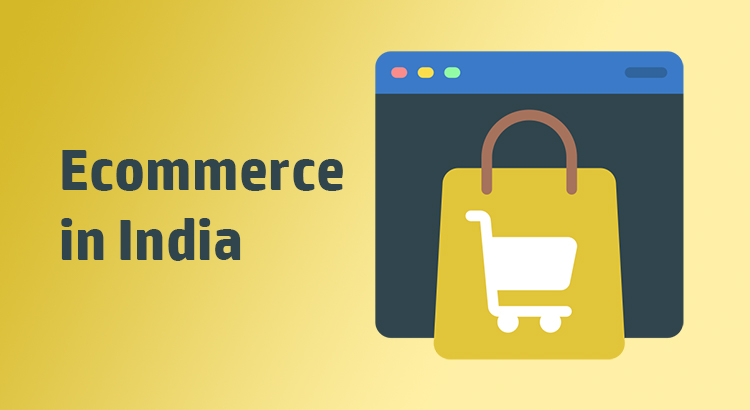The ecommerce industry in India has transformed dramatically over the past decade, fueled by factors such as increased smartphone penetration, growing affluence, and affordable data prices.
This article provides a comprehensive overview of the ecommerce industry in India, covering key players, market growth, market size, policies, and future prospects.
Related Article: How to Start an Ecommerce Business in India?
Article Overview
- Ecommerce Companies in India
- Ecommerce Industry Growth in India
- Ecommerce Market Size in India
- Ecommerce Policy in India
- Ecommerce Future in India
- Wrapping Up: Ecommerce Industry in India
Ecommerce Companies in India
Several ecommerce platforms have established a strong presence in the Indian market:
1. Amazon India
Launched in 2013, Amazon India offers a diverse range of products and is known for its competitive pricing, secure payment options, and fast delivery.
2. Flipkart
Founded in 2007, Flipkart is a leading Indian ecommerce company offering a wide array of product categories, innovative customer service, and partnerships with various payment networks.
3. Meesho
Meesho enables entrepreneurship by connecting suppliers and resellers, allowing individuals to start their own ecommerce business in India with minimal investment.
4. Myntra
Acquired by Flipkart in 2014, Myntra specializes in lifestyle and fashion products, with a hybrid logistics system ensuring timely delivery and an enhanced shopping experience.
5. Ajio
A part of Reliance Retail, Ajio offers a blend of local and international fashion, catering to diverse consumer preferences.
6. Snapdeal
Known for its extensive product range and competitive pricing, Snapdeal has emerged as a trusted ecommerce platform in India.
7. JioMart
A joint venture between Jio Platforms and Reliance Retail, JioMart initially focused on online groceries but has expanded into other product categories.
8. Tatacliq
Tatacliq offers a curated selection of products, including home decor, fashion, and electronics, sourced from both emerging and established brands.
9. Etsy India
Etsy specializes in handmade and vintage goods, providing a platform for individual creators and small businesses to reach a wider audience.
10. Nykaa Fashion
Launched in 2018, Nykaa Fashion offers a diverse range of lifestyle and fashion products, catering to various consumer segments.
Ecommerce Industry Growth in India
The Indian ecommerce market, valued at $14 billion, has been experiencing rapid growth, with online travel being the largest segment.
Social media has played a crucial role in expanding the reach of ecommerce, facilitating advertising, brand building, and customer engagement.
Rising internet penetration, coupled with increasing smartphone usage, has further fueled the industry’s growth.
Ecommerce Market Size in India
The ecommerce in India market share is projected to reach USD 299.01 billion by 2029, growing at a CAGR of 21.5% from 2024 to 2029.
Factors such as rapid urbanization, rising internet penetration, and government policies promoting ecommerce have contributed to this growth.
The Digital India initiative aims to transform India into a trillion-dollar digital economy by 2025, driving further expansion of the ecommerce sector.
Ecommerce Policy in India
India’s National Ecommerce Policy aims to address regulatory challenges, protect consumer interests, and promote innovation in the ecommerce sector.
The policy’s strategic recommendations position India as a leader in the global ecommerce landscape, setting new standards for regulatory frameworks and fostering collaboration among stakeholders.
Ecommerce Future in India
Ecommerce future in India looks promising, with the online shopper base projected to soar to 400–450 million by 2027.
The influx of new shoppers, especially from tier-3 cities and Gen Z demographics, underscores the sector’s potential, with increased engagement observed across retail platforms.
These trends highlight the vast opportunities of ecommerce in India, driving economic growth and digital inclusion across diverse demographics and regions.
Wrapping Up: Ecommerce Industry in India
The ecommerce industry in India continues to evolve rapidly, driven by technological advancements, changing consumer preferences, and supportive government policies. As the market expands and matures, collaboration among stakeholders and a focus on innovation will be essential to sustain growth and capitalize on emerging opportunities.


